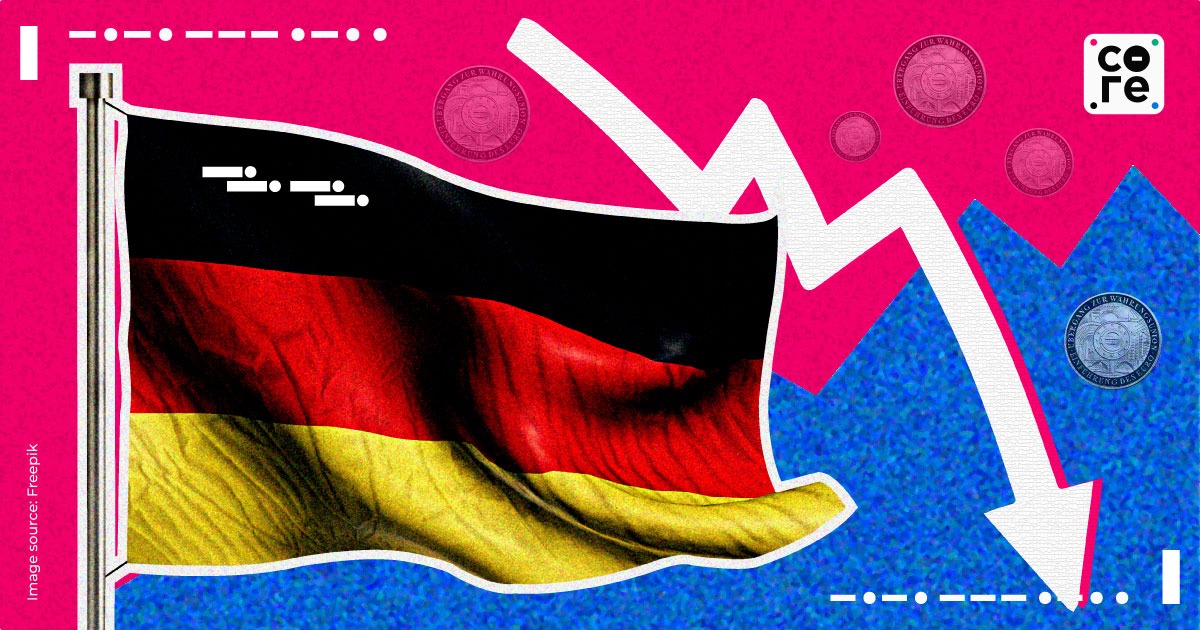
- Home
- Top Stories
- How Germany Fell Into A Recession And...
How Germany Fell Into A Recession And What It Could Mean For India
For a country known for its cars; the recession conveys that its economic engines are finally slowing down.

The German economy entered a technical recession after its economy contracted 0.3% in the first quarter of 2023 (jargon alert: it occurs after two consecutive quarterly economic contraction).
As months of high inflation persisted, households spent less on things like apparel, food and newer cars. All this ‘private consumption' was down 1.2%. The government spent less too, down 4.9%.
The doom of 2022, kickstarted by Russia's invasion of Ukraine, seems to have caught up with it. For a country known for its cars; the recession conveys that its economic engines are finally slowing down.
Germany is Europe's largest economy and is crucial for keeping the economics of the continent chugging through. A trend of broader economic pessimism also reverberated through the rest of Europe after the invasion, nudging consumers to cut back on spending and dip into savings, McKinsey says, on the back of pricier shopping.
However, this recession may not be the swan song heralding Germany's decline.
/thecore/media/post_attachments/HsgUmj2c3wE2J7Erby3X.jpg) Why?
Why?
Before the German economy saw the recession trickle in, it soldiered through the choppy waters of last year, even defying expectations of an earlier onset of this economic lull.
First, when the invasion just began and it was staring at an energy shock, Germans prepared for a literal long, dark and cold winter (a great euphemism, if you ask me) fearing heating shortages and blackouts. However, quick deals with alternate gas supplies ensured that German gas storages hit 100% mid-November. Climate change played its role too, ensuring that the winter months were not too harsh.
Second, in the July – September quarter, German consumer spending stood firm in the face of high inflation, belying the expectation of an economic contraction and kicking that can down the road by one quarter. The economy actually grew,
Finally, when the German economy finally contracted 0.5% QoQ for the first time in the October to December quarter, inflation triumph over this spending. But capital formation and household and government consumption actually grew, though moderately.
Observers of the German economy say that its outlook is worsening. German chancellor, Olaf Sholz, says it is "very good". Take both with a pinch of salt.
What could this mean for India?
A global slowdown has generally put Indian exporters in a huddle with this German domino just falling.
"The technical recession in Germany will not have significant impacts on the Indian economy as our macroeconomic fundamentals are getting better", Lekha Chakraborty, Professor NIPFP; and Member, Board of Management, International Institute of Public Finance, Munich, told The Core. "However, given the geopolitical risks and uncertainties emanating from global central banks in terms of higher interest rates may compel RBI to maintain status quo in policy rates, which could adversely affect the growth recovery process," she added, suggesting that fiscal policy would need to be accommodative to support growth in the face of such macro uncertainties.
The Confederation of Indian Industry, however, does anticipate a slump. Its EXIM Committee Chairman has told PTI, "In 2022, 4.4 per cent of India's total exports were to Germany, concentrated mainly in sectors like organic chemicals, machinery, electronics, apparel, footwear, articles of iron and steel and leather goods".
He added that would be too early to see the impact of this recession on India.
For a country known for its cars; the recession conveys that its economic engines are finally slowing down.

